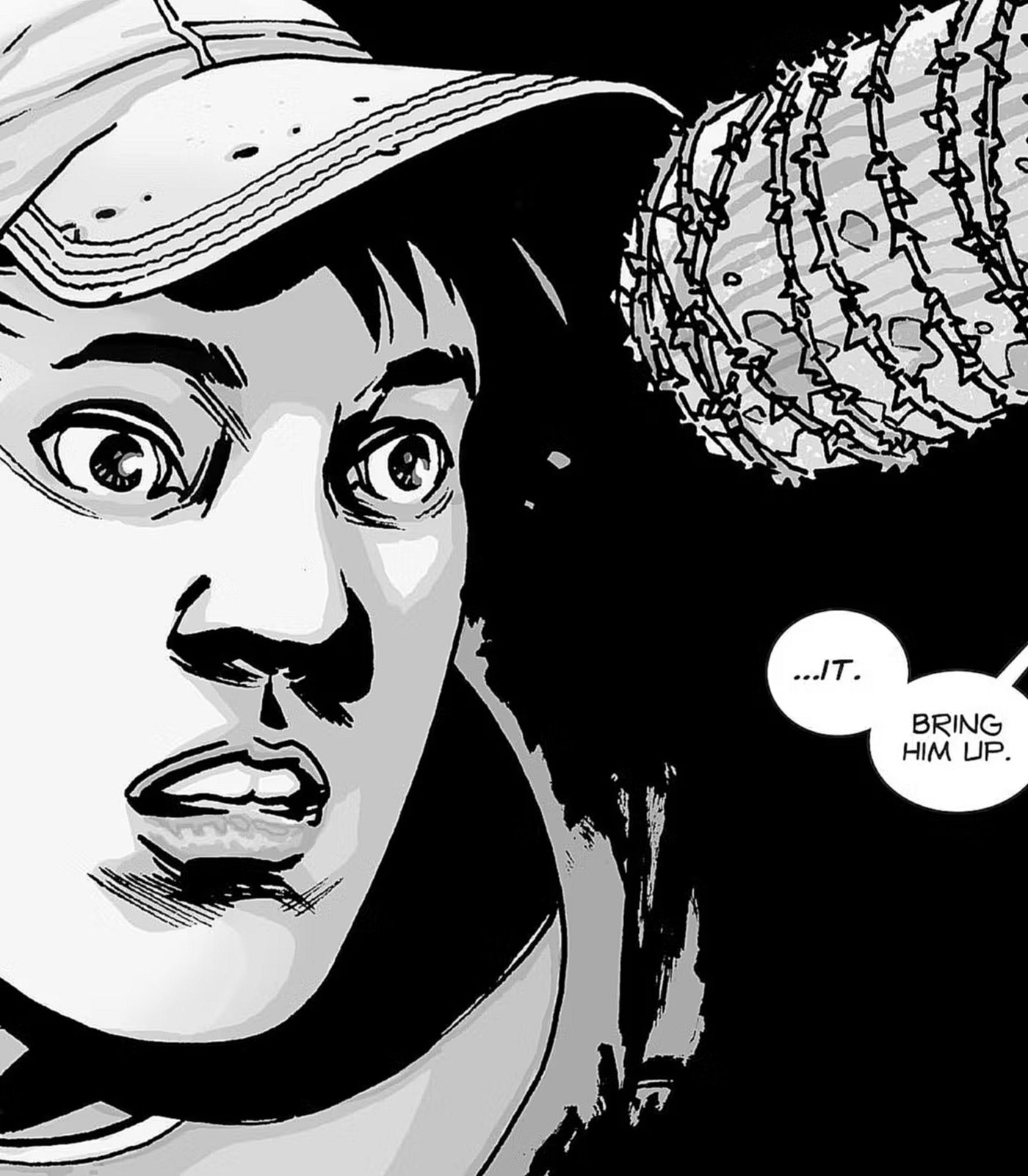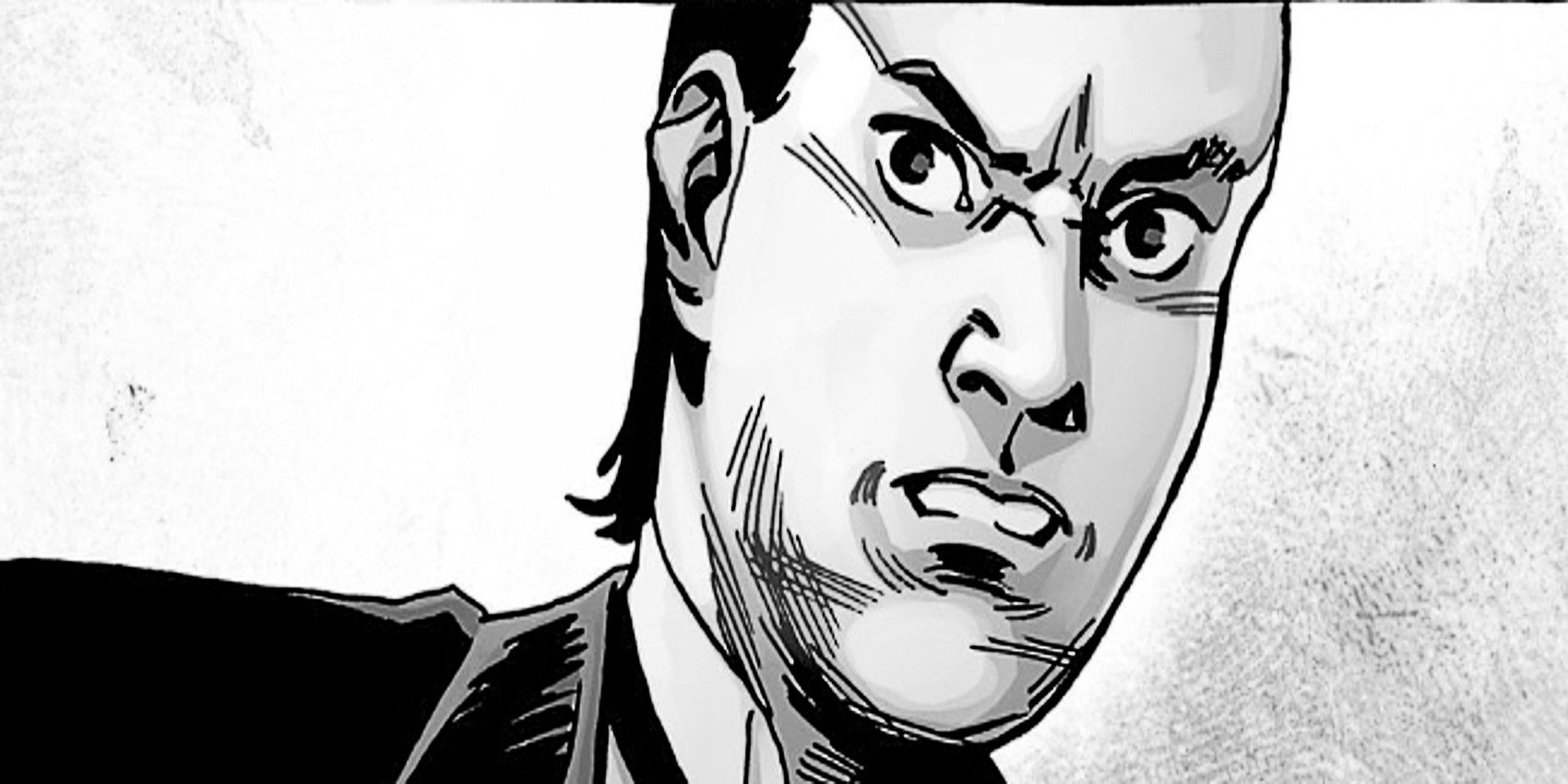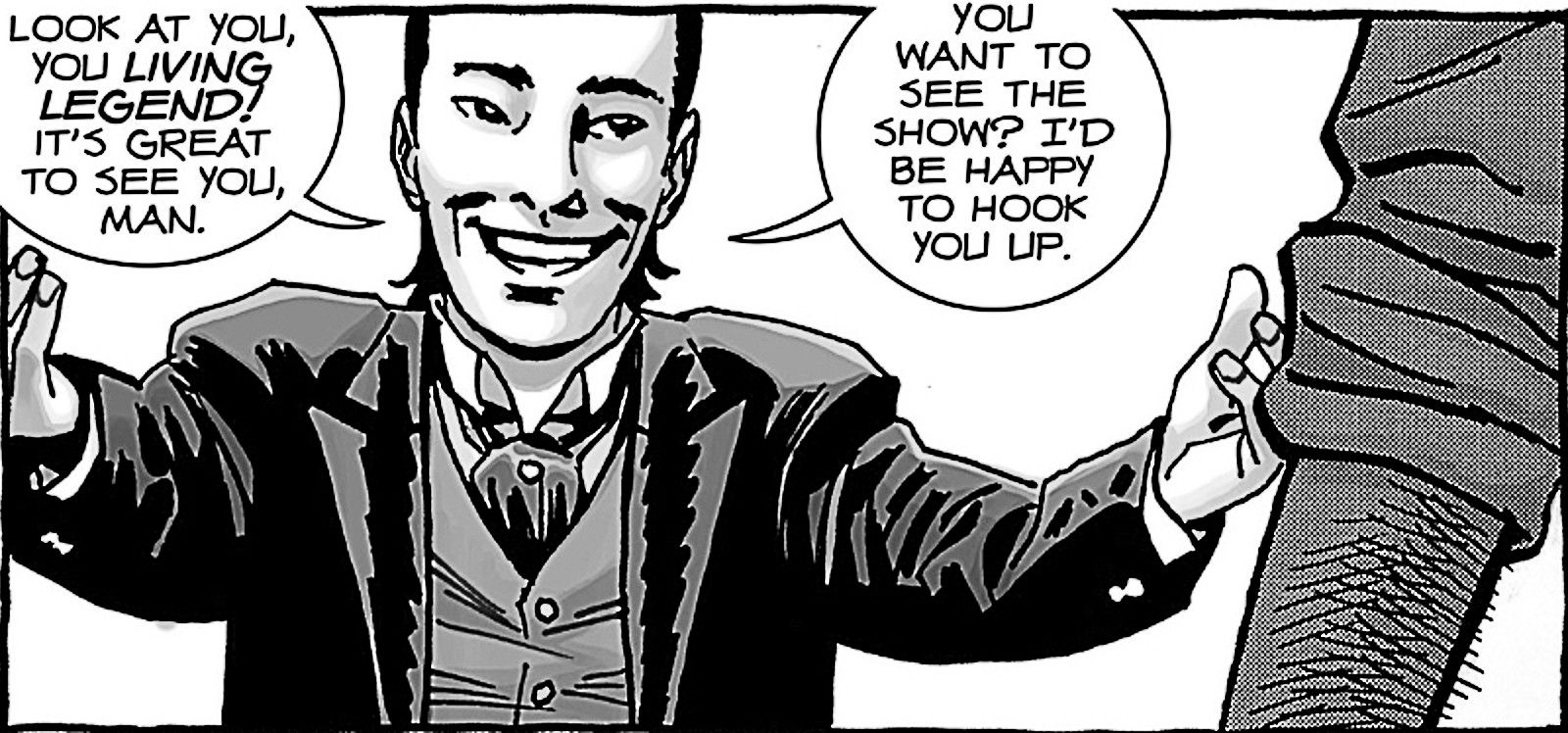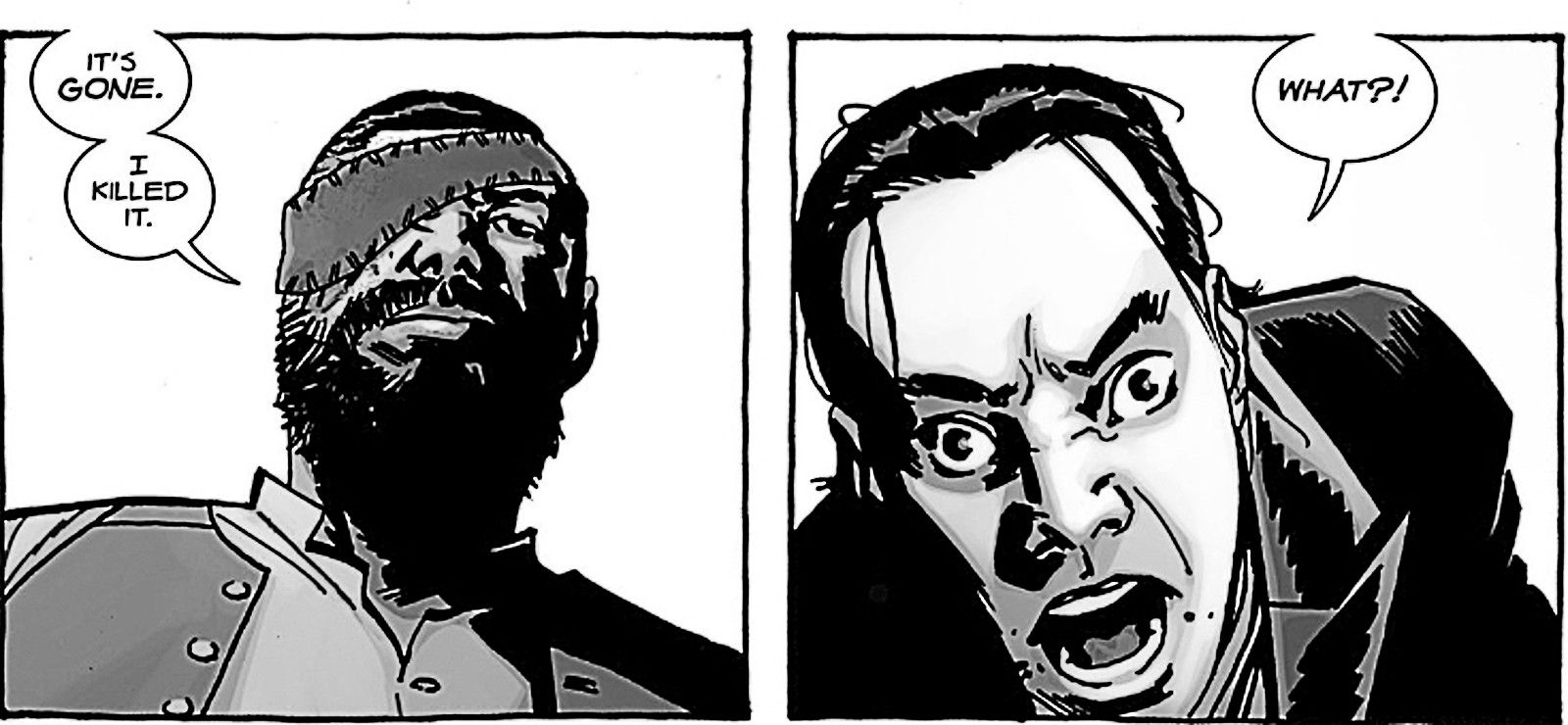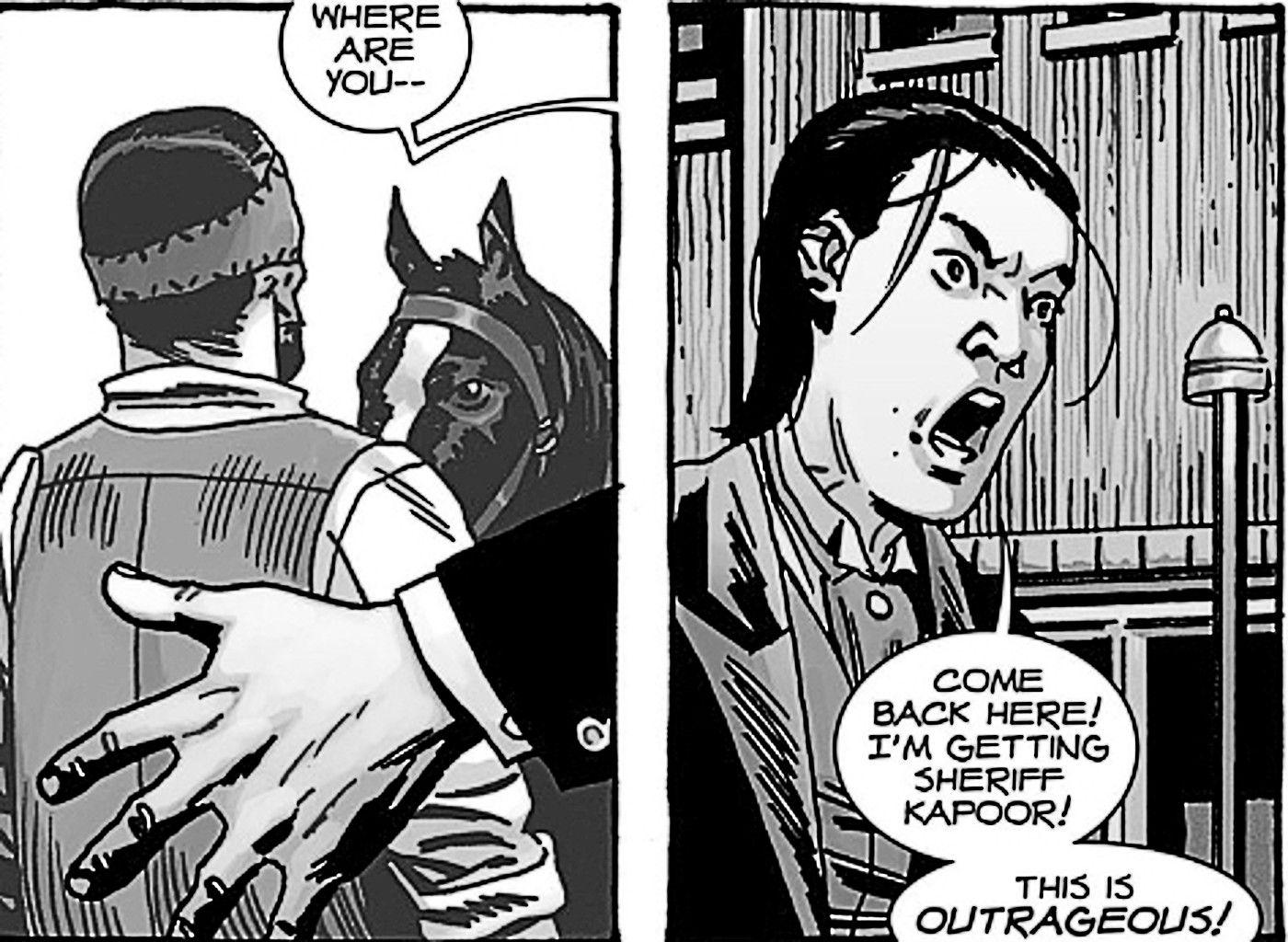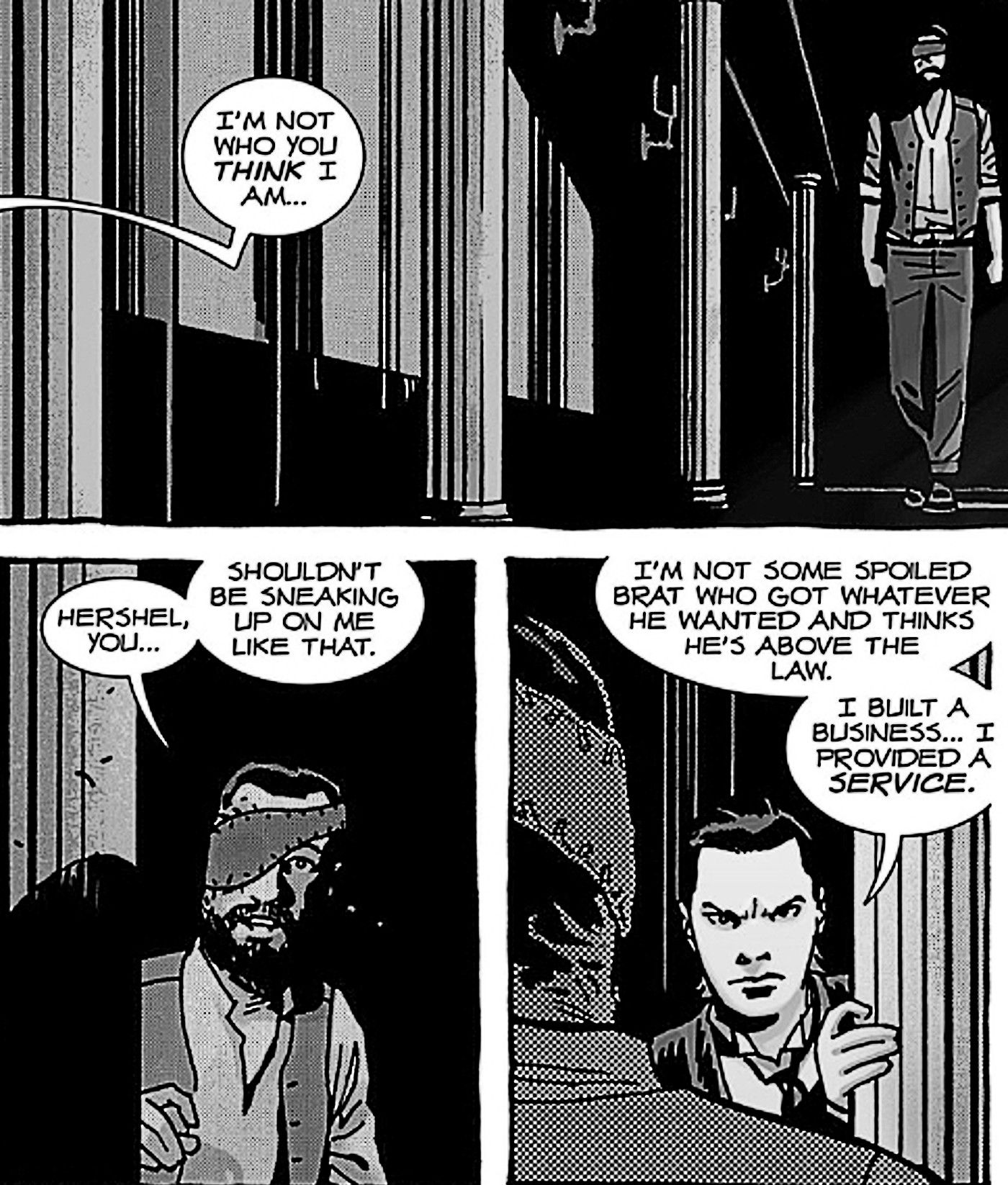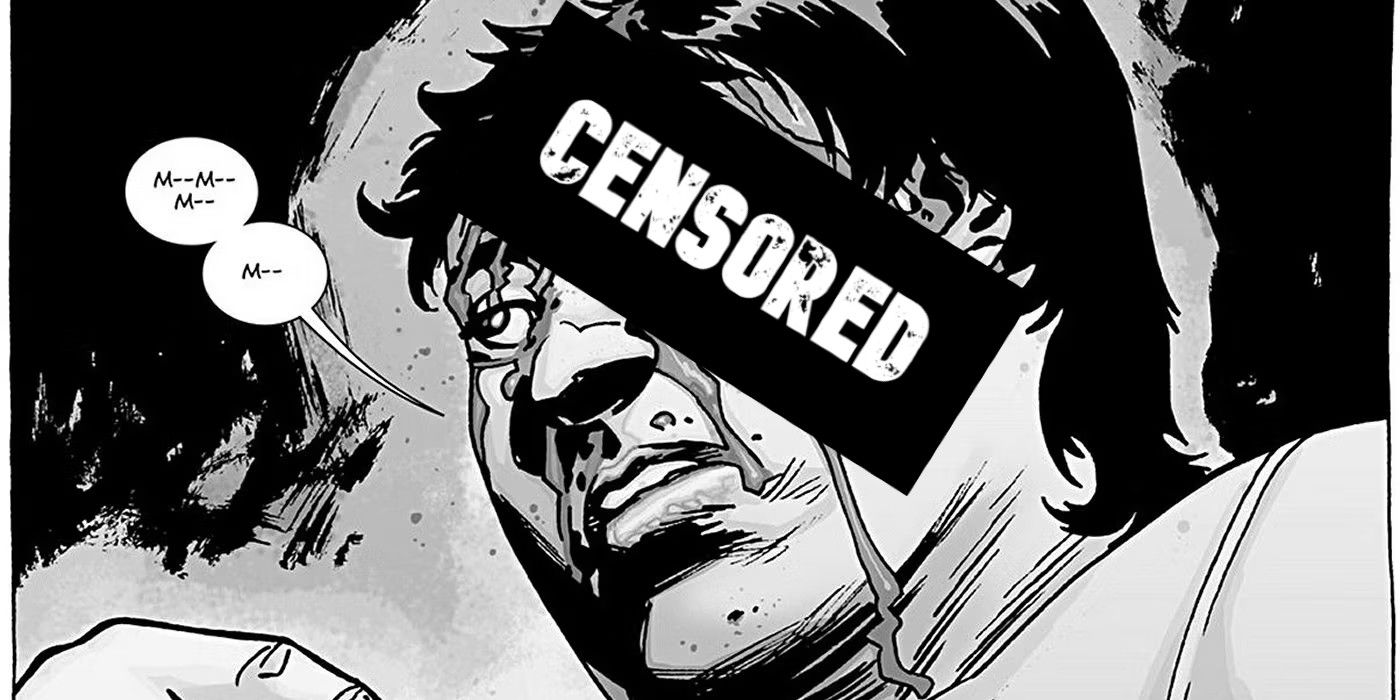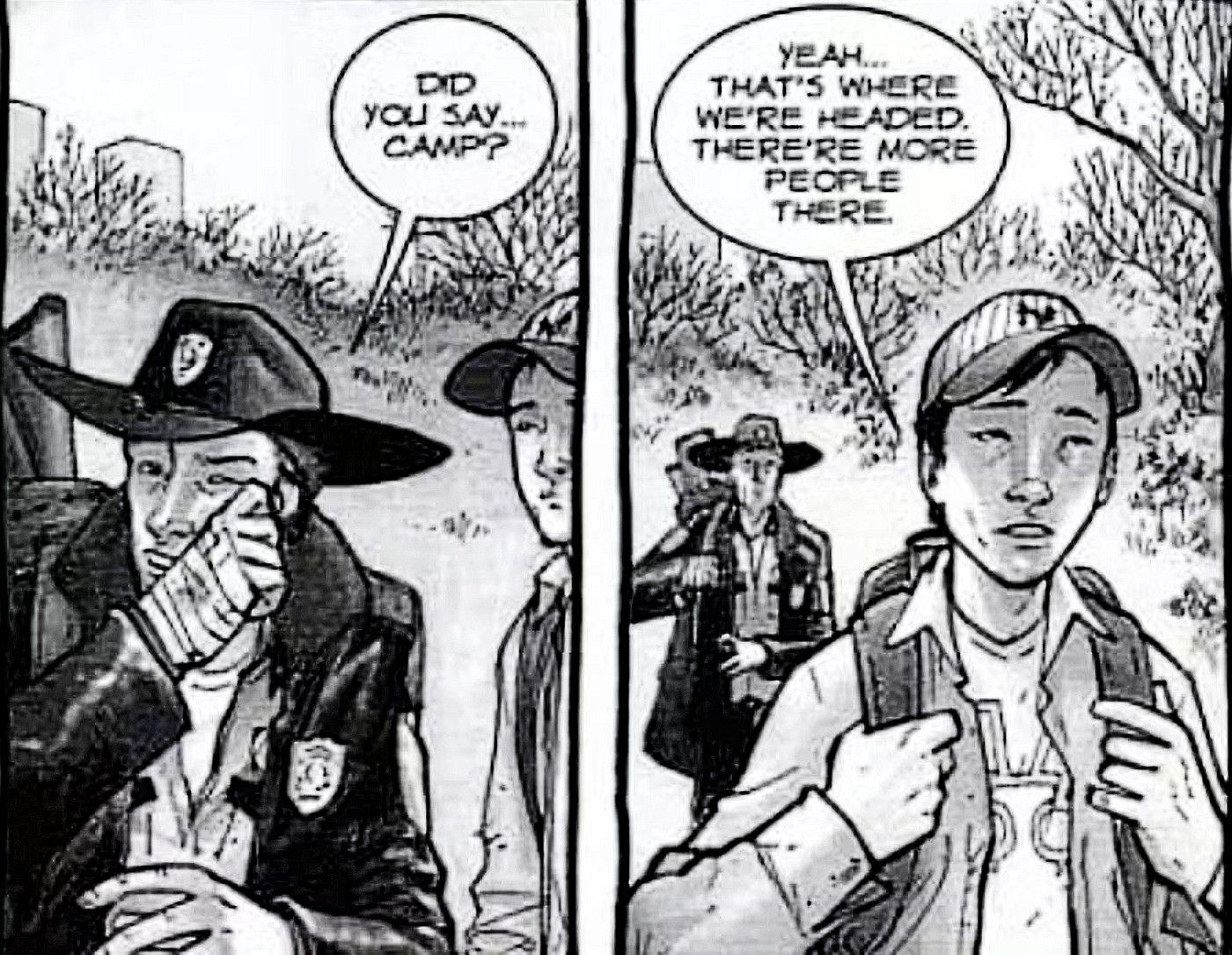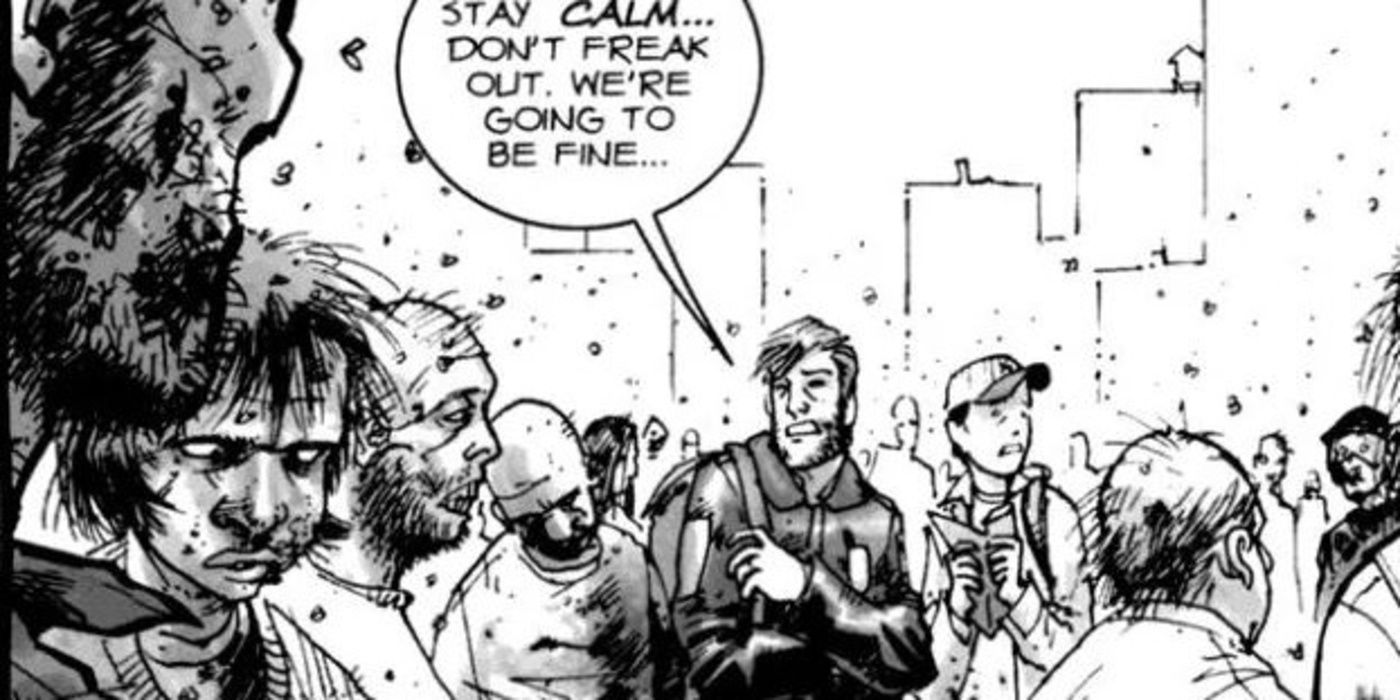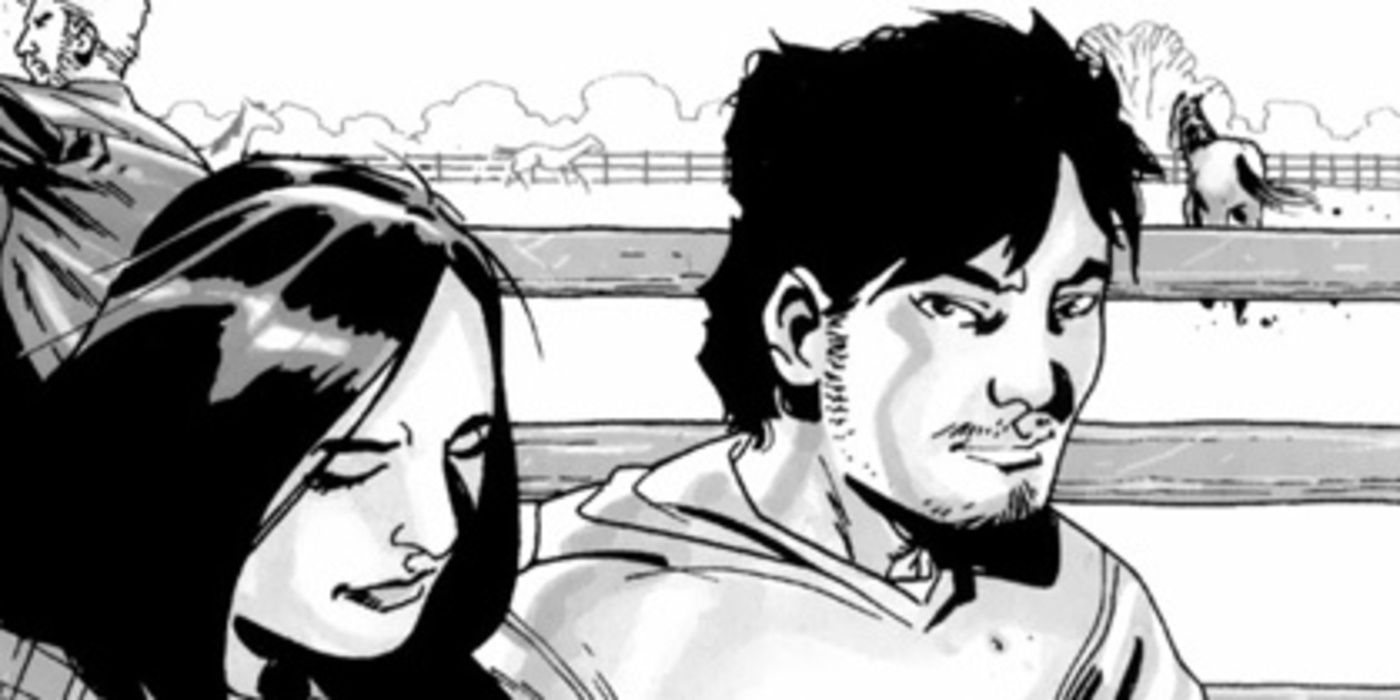While Glenn’s death is a horrifying moment in The Walking Dead comics, the deeper tragedy is that he isn’t around to help raise his son Hershel.
Few deaths in the history of comic books have been as tragic as Glenn’s murder in The Walking Dead, but the fate of his son Hershel in the series’ final issue makes this loss all the more heartbreaking in retrospect. The void left by Glenn’s death was felt by every character, but the loss did the most damage to Hershel, who never even got to meet his father.
The Walking Dead #100 – written by Robert Kirkman, with art by Charlie Adlard – was a major milestone for Image Comics’ zombie series, and the book’s creators celebrated by subjecting readers to one of its most devastating scenes, in which Glenn is killed by Negan, the leader of the Saviors, as retaliation for the killing of his men by Rick Grimes and his group of survivors.
The issue, specifically Glenn’s death, served as a turning point for Walking Dead in many ways – but the true extent of its sad legacy isn’t fully evident until the final issue of the series.
Glenn’s Death Left His Son Hershel Bitter & Resentful
Tragedy Is More Than Just Bloodshed
This is one more subtle heartbreak attached to Glenn’s death: if Glenn had survived to raise his child, then his more thoughtful personality and involved presence in his son’s life would’ve likely led Hershel to develop into a more competent and considerate adult.
In The Walking Dead #100, Glenn’s pregnant wife Maggie is also part of the group that gets captured by Negan’s men, and she is forced to witness her husband’s brutal death. Some time afterward she gives birth to Hershel. Always bold and strong, Maggie goes on to become one of the toughest, most capable leaders of any survivor group in the zombie outbreak, eventually becoming the President of her own survivor community. Understandably, her focus on leading her community and eliminating zombies makes it difficult to give the fullest attention to the care and development of her and Glenn’s child.
Intuitively, it is easy to think that the tough-as-nails Maggie would have made sure that her son could “kick some butt” when necessary. However, as a result of Glenn’s untimely death and Maggie’s increasing leadership responsibilities, Hershel grows up quite different from his parents. The Walking Dead #193, the final issue of the series, flashes forward years into the future, where Hershel is revealed to have grown into an adult who coasts on his mother’s power and reputation. The son of Glenn and Maggie is now a traveling showman, with a collection of captive zombies.
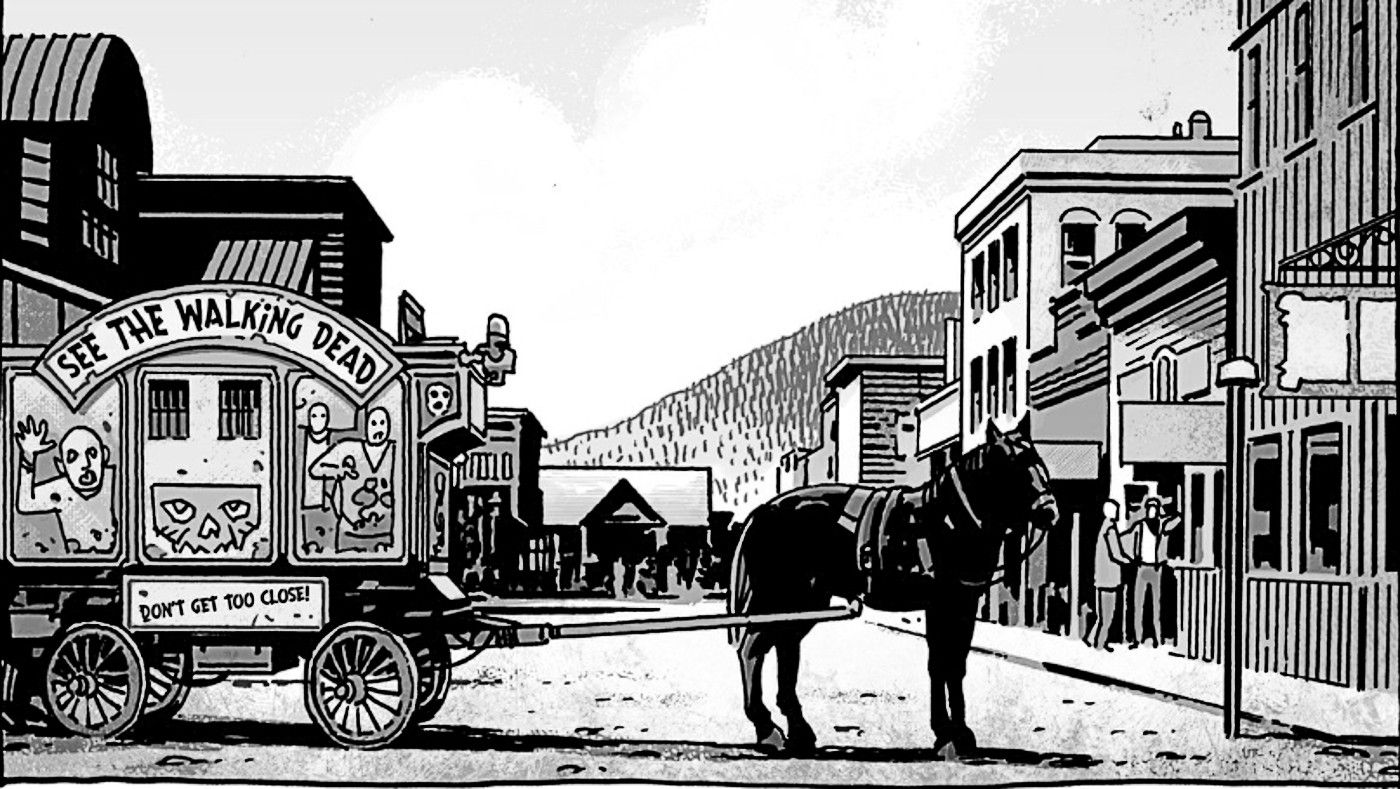
When one of these zombies gets loose and is killed by Carl, Hershel isn’t upset about the potential danger the zombie could have posed, but rather bemoans the loss of an expensive zombie. He goes to the sheriff, and takes Carl to court. He’s upset that people revere the memory of Rick Grimes, but have seemingly forgotten his own father. This is one more subtle heartbreak attached to Glenn’s death: if Glenn had survived to raise his child, then his more thoughtful personality and involved presence in his son’s life would’ve likely led Hershel to develop into a more competent and considerate adult.
Hershel Embodies The Lasting Trauma Of The Zombie Outbreak
Generational Pain After The Apocalypse
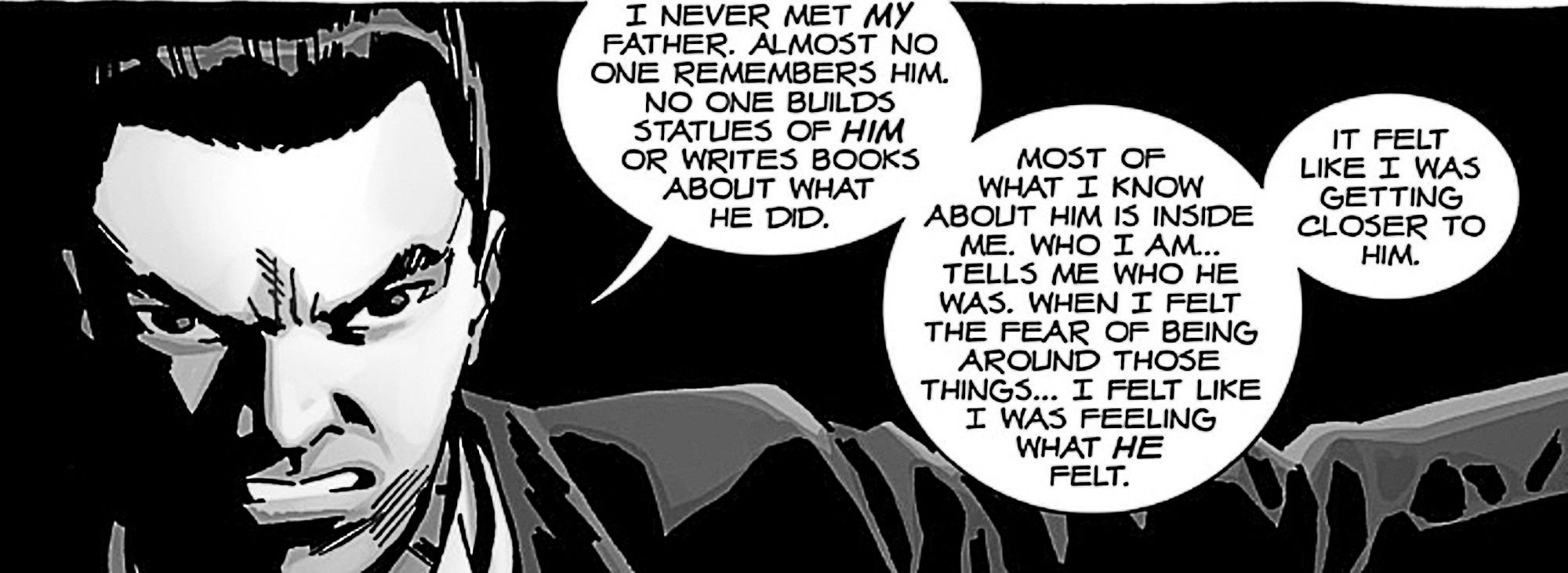
In a critical way, The Walking Dead #193 uses Hershel in a key narrative role, as a representation of the lasting trauma of the zombie outbreak, felt most acutely by those born during and immediately after the worst of it.
The tragedy of Glenn’s murder was born from more than just its depiction in gutwrenching detail – as readers of The Walking Dead had come to expect by that point in the series – but also in the fact that it killed off one of the most helpful, kindhearted, and thoughtful characters in the comic. More than almost any other character killed off in the series, the effects of Glenn’s demise reverberated through the rest of the series, up to its conclusion. In Walking Dead #193’s flashforward, the generational toll of Glenn’s death makes it even more brutal.
Glenn’s absence is felt as deeply as it ever was in Walking Dead’s final issue, as readers come to terms with the sad truth that he wasn’t available to help raise his son Hershel. As Earl says in the issue, Hershel “was not raised right” and “has always been trouble.” However, this would not have been the case if he’d grown up with Glenn in his life. In a critical way, The Walking Dead #193 uses Hershel in a key narrative role, as a representation of the lasting trauma of the zombie outbreak, felt most acutely by those born during and immediately after the worst of it.
Glenn’s Legacy Is One Of Walking Dead’s Final Emotional Punches
One More For The Road
Hershel’s actions, but more crucially, the pain he expresses at growing up without Glenn, are among the final, farewell emotional beats of The Walking Dead , in a way putting a bow on threads that went back to the series’ debut issue.
The chances are that even if Glenn was not killed by Negan, Maggie would’ve still become the leader of Hilltop, or one of the survivor communities in some capacity. Glenn’s easygoing, supportive personality would more than likely have allowed him to be Hershel’s primary caregiver, freeing up Maggie to be all she can be. Maggie tries to make up for Glenn’s killing and absence by giving Hershel whatever he needs. It’s her way of trying to save him the hurt and chaos she’s experienced.
However, as pointed out in The Walking Dead #193, Hershel develops into an arrogant and self-centered member of the community. He does not seem to have an issue with flaunting his social status as the son of the President, or expecting everyone –even the son of the man whose existence made a post-zombie world possible – to treat him with respect. Hershel’s actions, but more crucially, the pain he expresses at growing up without Glenn, are among the final, farewell emotional beats of The Walking Dead, in a way putting a bow on threads that went back to the series’ debut issue.
Hershel’s hurt at never having met his dad, and his pain at the thought that Glenn’s crucial contributions to humanity’s survival will be lost to time, demonstrate the continued impact of his death well into his son’s adult life. Although there are no guarantees in parenting, Glenn’s personality suggests that he would have raised his son to be a caring individual who is sensitive to the complexities of a post-apocalypse world and the people who live in it. Glenn Rhee‘s death is shocking, but his absence from his child Hershel‘s life is one of The Walking Dead‘s greatest tragedies.
